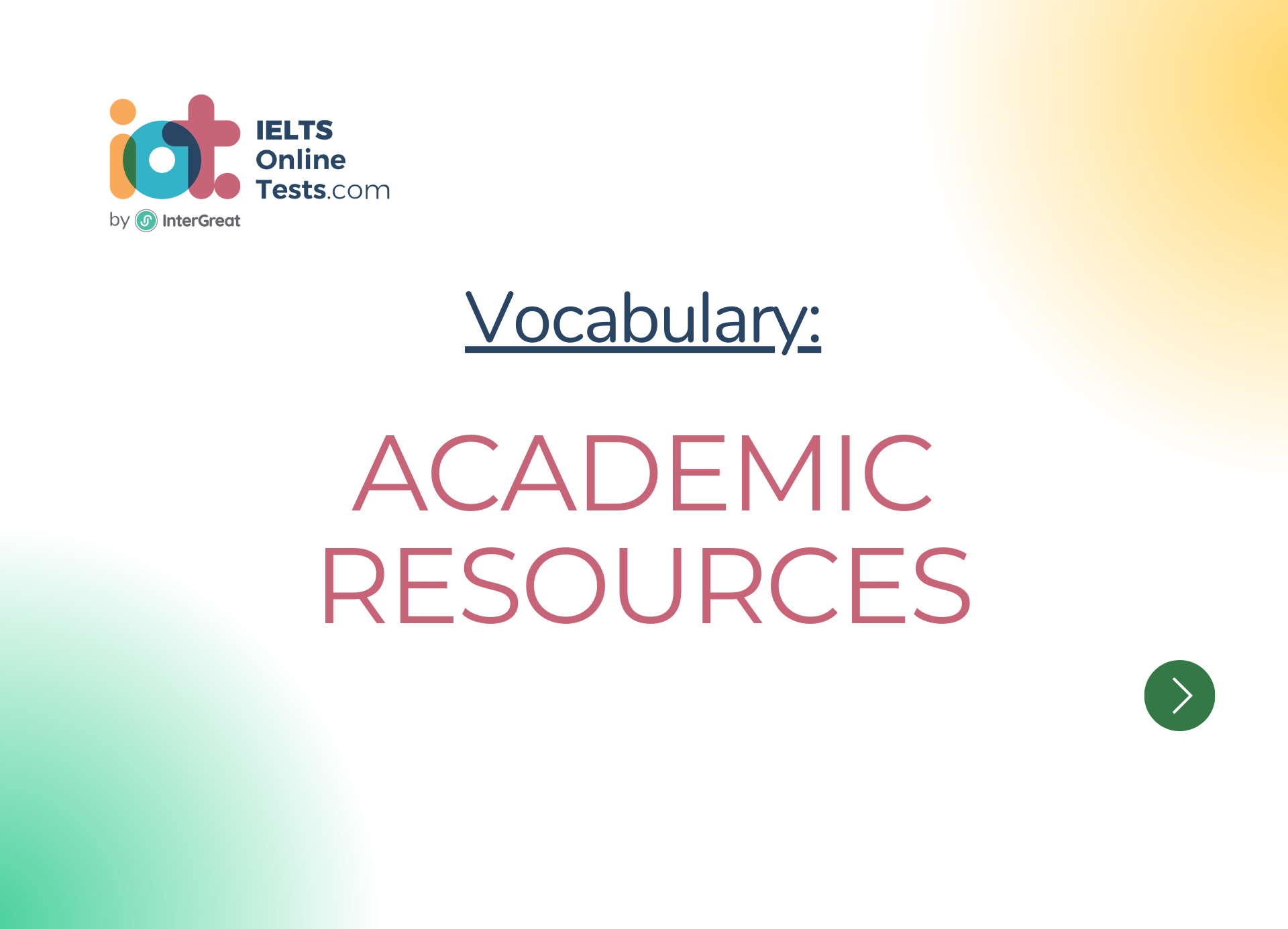
Academic resources
Here are some vocabulary words related to academic resources for the IELTS band score range of 4.5-6.0:
1. Library Resources
Reference Books: Books that provide factual information on various topics.
Journals: Academic publications containing research articles.
Databases: Online collections of articles, papers, and other academic resources.
2. Online Resources
E-books: Electronic versions of books available for reading online or downloading.
Webinars: Online seminars or workshops conducted over the internet.
Online Courses: Educational programs offered through the internet.
3. Academic Databases
PubMed: Database of biomedical literature and research.
JSTOR: Digital library of academic journals, books, and primary sources.
ProQuest: Collection of dissertations, theses, and academic journals.
4. Research Papers
Abstract: A summary of a research paper's main points and findings.
Literature Review: A comprehensive analysis of existing research on a topic.
Methodology: The approach and methods used to conduct research.
5. Academic Writing
Citations: References to sources used in academic papers.
Paraphrasing: Rewriting someone else's ideas in your own words.
Cohesion: The logical connection between ideas in a written text.
6. Study Groups
Collaborative Learning: Learning in a group where members share knowledge.
Brainstorming: Generating ideas collectively through discussion.
Peer Review: Feedback provided by classmates on academic work.
7. Tutoring and Academic Support
Academic Advisor: A person who provides guidance on academic matters.
Tutor: An individual who helps with academic subjects and study skills.
Writing Center: A place offering assistance with writing assignments.
8. Educational Materials
Lecture Notes: Written summaries of a teacher's presentations.
Handouts: Printed materials distributed during lectures or classes.
Visual Aids: Charts, graphs, and diagrams used for better understanding.
9. Online Libraries
Google Scholar: Online search engine for academic articles and papers.
OpenCourseWare: Free online course materials provided by universities.
Project Gutenberg: Digital library of free e-books.
10. Academic Conferences
Keynote Speaker: A main speaker at an academic event or conference.
Panel Discussion: A group of experts discussing a specific topic.
Presentation Abstract: A brief summary of a conference presentation.
11. Research Methods
Qualitative Research: Exploring and understanding human behavior and experiences through non-numerical data.
Quantitative Research: Collecting and analyzing numerical data to draw conclusions.
Case Study: In-depth analysis of a specific individual, group, or situation.
12. Academic Integrity
Plagiarism: Using someone else's work or ideas without proper acknowledgment.
Citation Style: A specific format for citing sources in academic writing (e.g., APA, MLA).
Academic Dishonesty: Any act of cheating or unethical behavior in academic settings.
13. Academic Vocabulary
Discipline-specific terms: Vocabulary used within a particular academic subject or field.
Academic Register: Formal language used in academic writing and communication.
Collocations: Word combinations that frequently occur together in academic texts.
14. Study Skills
Time Management: Efficiently organizing and allocating time for study and other activities.
Note-taking: Recording key points and important information during lectures or reading.
Critical Thinking: Evaluating information and arguments in a thoughtful and analytical manner.
15. Academic Goals
Short-term Goals: Specific objectives to achieve in the near future.
Long-term Goals: Ambitious objectives set for a more extended period.
SMART Goals: Goals that are Specific, Measurable, Achievable, Relevant, and Time-bound.
These vocabulary words will help you discuss and understand various academic resources available to students and researchers. Practice using them in context to enhance your English proficiency and academic communication skills. Good luck with your studies!




